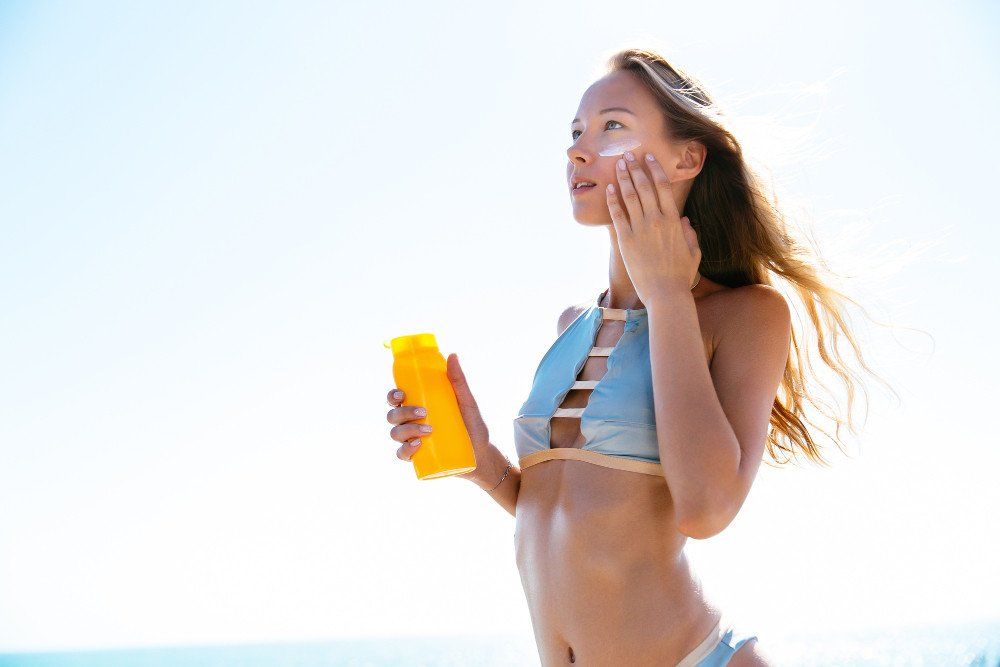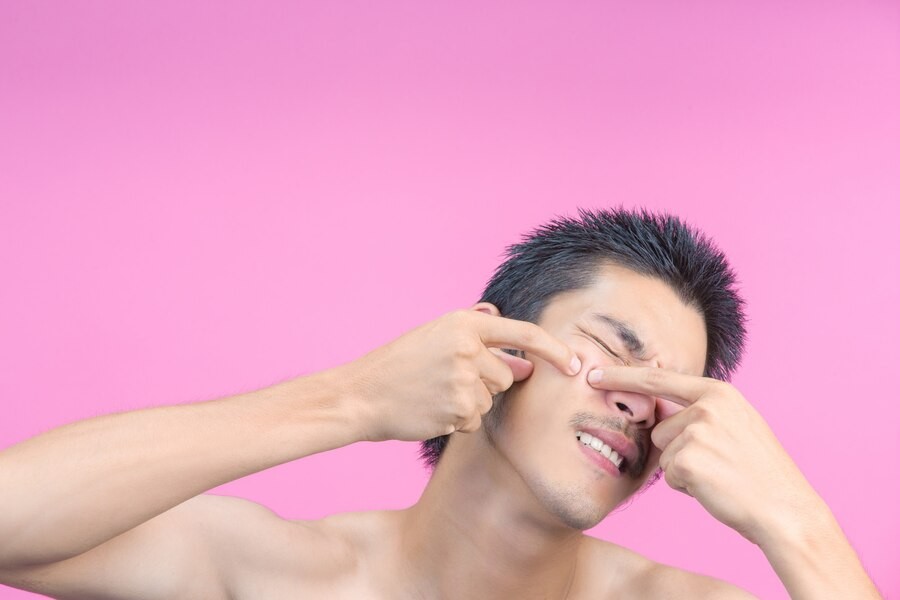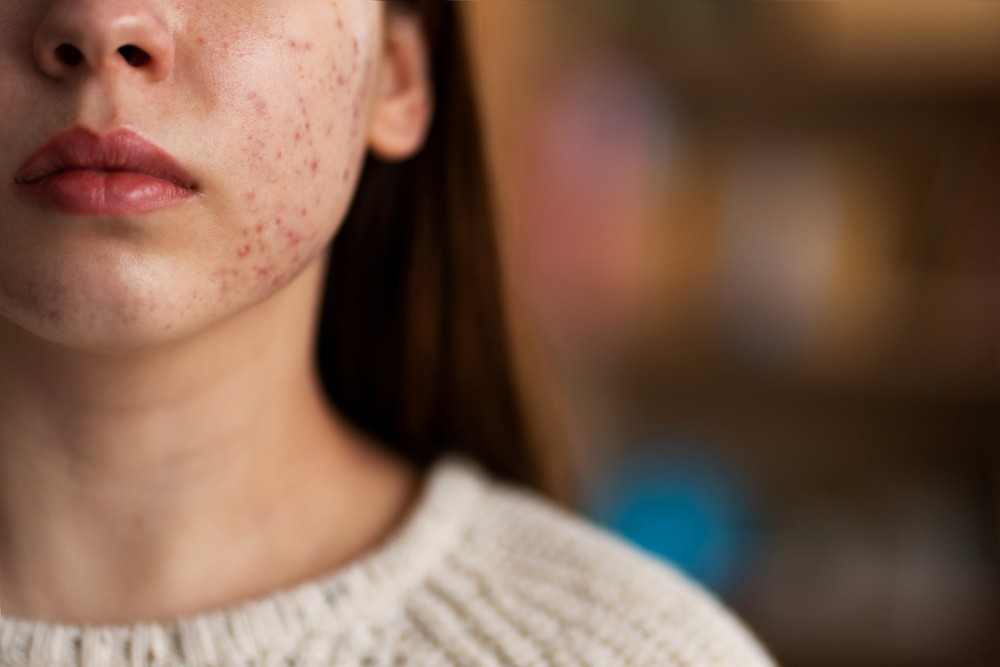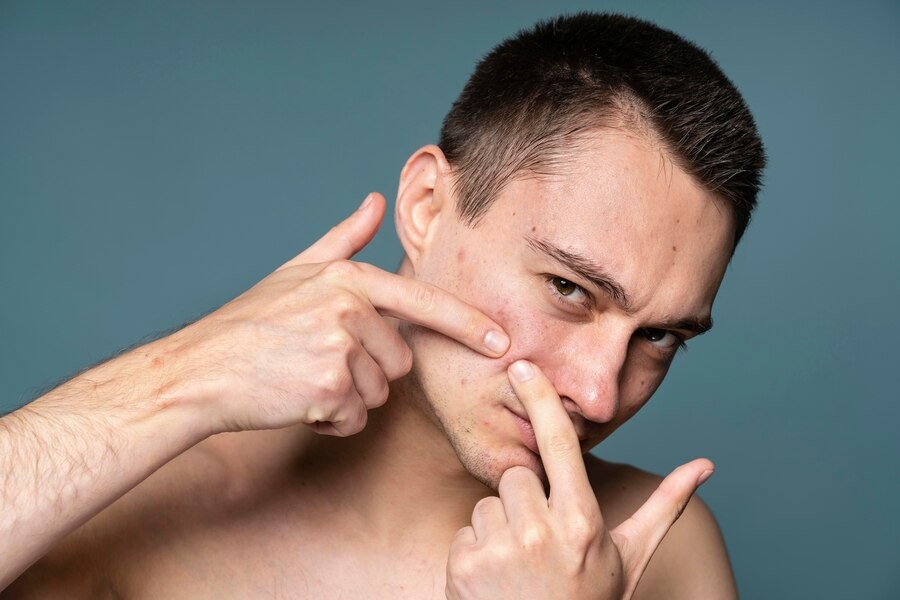Saat kulit berjerawat, Anda mungkin menjadi lebih berhati-hati dalam menggunakan skincare atau kosmetik pada wajah. Jika tidak berhati-hati, beberapa kandungan dalam skincare dapat memperparah kondisi jerawat. Lantas, bagaimana dengan penggunaan sunscreen? Benarkah penggunaan sunscreen dapat memperparah jerawat?
Bolehkah Menggunakan Sunscreen saat Berjerawat?
Jerawat terbentuk akibat adanya folikel rambut yang tersumbat karena tumpukan minyak, debu, kotoran, dan sel kulit mati. Kondisi ini menyebabkan timbulnya jerawat seperti komedo putih, komedo hitam, atau peradangan jerawat.
Beberapa hal yang dapat memperparah jerawat antara lain:
- Perubahan hormon yang dapat meningkatkan produksi sebum
- Penggunaan obat-obatan kortikosteroid atau penggunaan obat hormonal
- Pola makan tinggi karbohidrat
- Stres yang tidak dikelola dengan baik
Banyak orang beranggapan bahwa penggunaan kosmetik atau sunscreen dapat memperparah jerawat. Menurut WebMD, penggunaan kosmetik sebenarnya tidak selalu memperparah jerawat, tergantung dari jenis kosmetik yang Anda gunakan.
Jika Anda menggunakan kosmetik bebas minyak, bersifat nonkomedogenik, dan rutin membersihkan sisa riasan dengan tepat, hal ini dapat mengurangi risiko munculnya jerawat. Penggunaan kosmetik yang tidak mengandung minyak juga tidak memengaruhi efektivitas penggunaan obat jerawat sehingga aman digunakan.
Begitu juga dengan penggunaan sunscreen. Para ahli menganjurkan penggunaan sunscreen setiap hari untuk melindungi bahaya kulit dari paparan sinar matahari. Pada dasarnya, penggunaan sunscreen tidak menyebabkan jerawat. Namun, sunscreen yang digunakan perlu disesuaikan dengan jenis kulit dan Anda perlu mencuci muka dengan bersih untuk mencegah timbulnya jerawat.
Baca Juga: Kebiasaan Ini Dapat Memperparah Kondisi Jerawat
Tips Memilih Jenis Sunscreen untuk Kulit Berjerawat
Kulit sensitif dan rentan berjerawat juga membutuhkan perlindungan dari bahaya sinar UV pada matahari. Bagi pemilik kulit berjerawat, sebaiknya hindari menggunakan sunscreen dengan formulasi berikut karena dapat memicu jerawat:
- Formula yang berat dan oklusif: Sunscreen yang mengandung pelembap berat seperti minyak kelapa, beeswax, dan minyak kakao dapat memperparah kondisi jerawat.
- Filter SPF kimia: Beberapa sunscreen yang mengandung SPF kimia seperti avobenzone, dapat menyebabkan reaksi peradangan pada kulit yang berjerawat. Sebagai alternatif, Anda bisa memilih sunscreen mineral.
- Pewangi tambahan: Pewangi tambahan dapat menyebabkan risiko iritasi yang berpotensi menyebabkan jerawat.
Baca Juga: Fakta dan Mitos Seputar Penggunaan Sunscreen
Sebaliknya, pemilik kulit sensitif dan acne prone dianjurkan memilih jenis sunscreen dengan kriteria berikut ini:
- Pilih jenis sunscreen khusus untuk wajah. Formulasi sunscreen khusus untuk wajah umumnya lebih ringan dan memiliki berbagai kandungan yang dapat membantu meredakan jerawat.
- Pilih sunscreen yang bertuliskan nonkomedogenik. Jenis sunscreen ini tidak mengandung minyak berlebih dan bahan yang menyumbat pori-pori sehingga aman bagi kulit yang rentan berjerawat.
- Pilih sunscreen sesuai jenis kulit. Jika kulit Anda kering, Anda bsia menggunakan sunscreen bertekstur losion. Jika dirasa terlalu berat untuk kulit, Anda bisa menggunakan sunscreen bertekstur gel atau spray.
- Pilih sunscreen yang mengandung bahan-bahan untuk meredakan jerawat seperti niacinamide dan zinc oxide.
- Pilih sunscreen yang mengandung squalane atau ceramide karena dapat meningkatkan kelembapan kulit dan mengurangi risiko jerawat.
- Pilih sunscreen bertuliskan board spectrum yang memberi perlindungan pada UVA dan UVB.
- Pilih sunscreen dengan SPF minimal 30.
Apa pun jenis kulit Anda, sebaiknya tetap gunakan sunscreen sesuai jenis kulit untuk melindungi wajah dari bahaya paparan sinar UVA dan UVB. Jika membutuhkan konsultasi mengenai masalah kulit berjerawat, sebaiknya periksakan ke dokter. Anda juga bisa memanfaatkan fitur konsultasi pada aplikasi Ai Care yang bisa diunduh melalui App Store atau Play Store.
Mau tahu informasi seputar penyakit lainya? Cek di sini, yah!
- dr Nadia Opmalina
Duggan, C. (2023). Does Sunscreen Cause Acne—or Help It? We Asked Dermatologists. Available from: https://www.byrdie.com/does-sunscreen-cause-acne-or-help-it-7546147
White-Gibson, Z. (2022). Do You Really Need Sunscreen Every Day?. Available from: https://www.healthline.com/health/sunscreen-explained
WebMD. How to Wash Face with Acne. Available from: https://www.webmd.com/skin-problems-and-treatments/acne/video/how-to-wash-face-with-acne
Palmer, A. (2023). How to Choose a Sunscreen for Acne-Prone Skin. Available from: https://www.verywellhealth.com/how-to-choose-sunscreen-for-acne-prone-skin-15916












